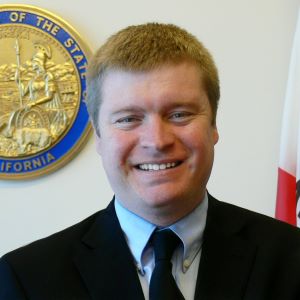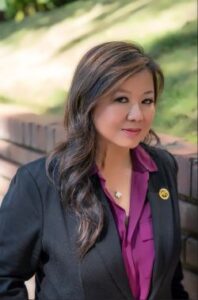News
Better know a flack: the Capitol’s best and worst press reps
 The scrum
The scrum Reporters and government press representatives are sometimes like lions and hyenas – major parts of the same ecosystem, but neither is very fond of the other.
That said, not every dealing between us and them (whichever camp you are in) has to be an exercise in misery.
With that in mind, Capitol Weekly recently did a very subjective, very unscientific email poll of our fellow journalists who cover the Capitol or other parts of California government to see who they think are the best press reps to deal with. And yes, we also asked who they think…. hmmm, how to put this nicely? … could be better at their job. We granted everyone anonymity so they could speak freely.
Replies came from reporters whose beats span the gamut of government, from city council meetings to chronicling the day-to-day activities of Gov. Gavin Newsom. As one might expect their answers were similarly broad in scope.
The Good
Let’s start on the positive side of things, specifically the folks who received high praise from multiple respondents. In that regard, nobody comes close to H.D. Palmer, the longtime Deputy of External Affairs for the California Department of Finance. Palmer – who has served as a DOF spokesperson under Govs. Pete Wilson, Arnold Schwarzenegger, Jerry Brown and now Gavin Newsom, as well as 12 years in the same role for three U.S. Senators in Washington D.C. – is not the only press person to get multiple kudos, but he is the one who received the most effusive – and interesting – praise.
“Our office nerds love H.D. Palmer,” said one respondent.
“H.D. Palmer stands far ahead,” said another.
“Accessible, gets you the answer you need promptly or tells you if he can’t,” another person responded.
And then there was the reporter who called Palmer “a national treasure.”

H.D. Palmer.
Palmer was humble at being singled out – not surprising to those of us who have worked with him over the years – saying he was “floored and flattered” at the notice. He laid the credit for his approach to representing his agency to the press on an old friend, current National Journal White House correspondent Tom DeFrank.
“Tom’s lasting (to me) observation was that the people who are considered as truly good and respected professionals in this line of work are the ones who are able to find the ‘sweet spot’ – which he defines as being someone who is able to accurately articulate the views of his or her principal, and at the same time being someone who is able to be a representative of – and, at times, an advocate for – the reporters who cover that principal. That is a spot where I’ve always strived to be,” Palmer explained in an email.
The reporters he deals with clearly believe he has achieved that goal.
Others receiving multiple positive votes include:
- Erik Mebust, communications director for Sen. Scott Wiener (D-San Francisco)
- Alex Vassar, communications manager for the California State Library
- Lea Park-Kim, communications director for Roger Niello (R-Fair Oaks)
- Izzy Gardon, communications director for Gov. Gavin Newsom
- Evan Westrup, spokesperson for Sen. Toni Atkins (D-San Diego)
- Jim Stanley, press secretary for the Assembly Republican Caucus
- Jacqui Nguyen, press secretary for the Senate Republican Communications Office

Alex Vassar
One respondent called Vassar “the gold standard” of media reps, while Mebust was lauded by another for not only being good at his job but also being “fun to chat with.”
Stanley and Nguyen also drew major praise, with one respondent saying, “The Republican caucus has two of the hardest working people ever with Jim Stanley and Jacqui Nguyen.”
Stanley says the key to his job is knowing not only what reporters need, but also the little details that can help make their stories better.
“When reporters reach out, I try to understand the story they’re telling and get them a response that adds to it. Ideally, I’m able to find a member with personal experience or insight on a particular issue so they can add a perspective that might otherwise not make it into some of the day-to-day coverage of what’s happening at the Capitol,” he said in an email.
“I also try to make it easy for reporters to do their jobs,” he added. “They’re working on tight deadlines and juggling a lot, so anything I can do to streamline things goes a long way.”

Jacqui Nguyen.
Nguyen said her own background in television news has given her an appreciation for how tough reporters have it, which she said provides her with “a strong foundation for me to understand the needs and wants of reporters and producers when they come knocking on our door with media opportunities.”
She further notes that being in the minority party for all of her decade working for the Senate Republicans has given her both great experience and the motivation to “understand the strength of my caucus members and their priorities” to share with the press.
Others who got at least one mention on the positive side include:
- Steve Harmon, communications director for Sen. Steve Glazer (D-Orinda)
- Nathan Click and Brandon Richards, both in the governor’s office
- Katie Talbot with Speaker Emeritus Anthony Rendon (D-Lakewood)
- Jackie Koenig with Senator Tom Umberg (D-Santa Ana)
- Janna Haynes, a spokesperson for Sacramento County
- Mary Lynne Vellinga, with Sacramento Mayor Darrell Steinberg
- Lindsay Buckley at the California Energy Commission
- Nannette Miranda with Assemblyman Phil Ting (D-San Francisco)
- Mike Blount with Assemblyman Chris Ward (D-San Diego)
- Pamela Wu at UC Davis Health
- Rishi Khalsa at the Civil Rights Department
- Kim Nava, communications director for Sacramento County
- Ailene Voisin at the California State Water Resources Control Board
- Ryan Endean at the California Department of Water Resources
It should not be surprising that so many of the folks listed above are also former reporters.
While Gov. Gavin Newsom seems to regard Capitol press corps as if they were something awful he stepped in while barefoot, several reporters also had nice things to say about his press folks.
“While the governor does not make himself so available to reporters, his staff works so hard to quickly get back to us with info at all hours of the day and night, and on weekends,” said one.
“I think Izzy Gardon and other gov spox (sic) genuinely and generally want to help reporters,” wrote another. “They just work in a tough office and for an even tougher boss.”
The Bad
For every yin there is a yang, and scribes were not shy about calling out the press managers they think could be better. Some respondents went with the broad brush, with one saying “most are God Awful.” Another said it was a hard question to answer because “they’re all so bad.” Most folks who answered our question, however, picked specific people, departments or agencies.
We have opted not to name those individuals, only the entities they work for.
Multiple respondents to our survey cited the California Department of Public Health as being among the worst when it comes to dealing with the media, mostly due to the agency’s insistence that reporters’ questions be submitted in advance and then, when deigning to even provide answers, to do so without attribution.
One respondent opined that the press people for them and for the Secretary of State’s office are “useless.”
“That should be strongly emphasized,” they wrote. “USELESS.”
Other entities catching heat were the California Air Resources Board, the Assembly Speaker’s office, the Lieutenant Governor’s office, the Assembly Rules Committee, the California Behavioral Directors Association and the Secretary of State’s office.
“When reporters reach out, I try to understand the story they’re telling and get them a response that adds to it.”
To be fair, nice things were also said about all of those entities.
Paschal Roth, the PR firm that handles media for the SEIU, also took a few hits, with one respondent calling them out for being “confrontational” and “difficult for no reason.”
Similar claims were levied against the California Department of Justice. Multiple respondents cited a consistent lack of responsiveness and an air of dismissiveness in their dealing with reporters.
“Maybe if I dealt with them more often I’d have better workarounds,” one respondent said. “But you pretty much have to email them and IF they respond it’s a non-helpful response from a nameless person.”
The Ugly
Such contentiousness can usually be chalked up to several factors. Reporters are usually dealing with the pressure of daily deadlines, and think any delay is the spokesperson stonewalling them. Press reps, meanwhile, often have a chain of command to follow when disseminating information, making them dependent on others to be able to do their jobs. Or maybe they think a reporter is looking more for conflict than context. Both sides can be dealing with a challenging boss. Or in the case of Paschal Roth, a client they represent, which is a whole different can of worms than any of the other situations noted here.
And there is no question that both sides also have their share of difficult personalities.
“I do believe that some of the flacks I get along with and who consistently answer my calls and inquiries might not be so responsive or helpful to other reporters, and vice versa,” said one respondent. “A lot of it boils down to personality and reporting styles. So while I’ve had some great luck with CDCR and DOJ, I can almost guarantee they’ll be on some other reporter’s sh*t list.”
And while we are theoretically in the most enlightened state in the union, there are other longstanding issues that sometimes come into play.
“I hate to say it, but sometimes it boils down to gender,” wrote one respondent. “Female spokespeople have historically been much easier to work with for me than their male counterparts. Age matters, too. For example, Nathan and Evan? Not always so great for me.”
The biggest challenge can often be keeping all of it in perspective, according to several people we polled. That’s true for people on the other side of the media as well. In that regard, we’ll give the final word to Jim Stanley.
“Even when we disagree, I try to remember they’re doing the best they can in a very tough job,” he says.
Indeed.
As noted above, there are two sides to every story. With that in mind, we invite press secretaries and communications folks in the Capitol and elsewhere in government to send us their picks for the best and worst reporters they deal with. After all, fair is fair. You can reach Capitol Weekly editor Rich Ehisen at [email protected].
Ed’s note: This story was edited to remove an anonymous quote attacking an elected official because it was out of context of the story. We also corrected the reference to the Department of Public Health, which we initially had as just the Department of Health. We regret the error .
Want to see more stories like this? Sign up for The Roundup, the free daily newsletter about California politics from the editors of Capitol Weekly. Stay up to date on the news you need to know.
Sign up below, then look for a confirmation email in your inbox.

Leave a Reply